Team:UCL/about
From 2014.igem.org
(Difference between revisions)
Lewismoffat (Talk | contribs) |
Adamdenyer (Talk | contribs) |
||
| Line 52: | Line 52: | ||
<p>Depending on the azo dye that is being degraded, different sets of breakdown products can be produced. Once degraded, each of the different compounds will be identified and separated. We have three potential avenues for re-using these products: (1) converting functional groups on the aromatic amines into simple aromatic fragrances; (2) isolating and diverting nitrogenous compounds to algae, which can form, and maintain, a symbiotic relationship with the dye-degrading <em>E. coli</em> hosts; (3) selling more complex compounds to pharmaceutical companies for the production of drugs. | <p>Depending on the azo dye that is being degraded, different sets of breakdown products can be produced. Once degraded, each of the different compounds will be identified and separated. We have three potential avenues for re-using these products: (1) converting functional groups on the aromatic amines into simple aromatic fragrances; (2) isolating and diverting nitrogenous compounds to algae, which can form, and maintain, a symbiotic relationship with the dye-degrading <em>E. coli</em> hosts; (3) selling more complex compounds to pharmaceutical companies for the production of drugs. | ||
| - | |||
| - | |||
| - | |||
| - | |||
</html> | </html> | ||
Revision as of 15:01, 5 September 2014
 "
"

 Azo dyes are the main synthetic colourant used in the industrial manufacture of a wide range of products such as clothing, upholstery, cosmetics, tattoo ink and more. These dyes are widely known to be safe and stable forms of synthetic colourants, however, when they are broken down in the guts of organisms they take on dangerous properties. In industry, leftover dye effluent is often not properly disposed of, or removed, during water treatment, which results in the accumulation of azo dyes in water bodies. It is at this point that these excess dyes are ingested, broken down, and excreted as products that have been found to be mutagenic and carcinogenic. Despite such toxicity, little to no effort has been made to dispose of these leftover azo dyes more responsibly.
Azo dyes are the main synthetic colourant used in the industrial manufacture of a wide range of products such as clothing, upholstery, cosmetics, tattoo ink and more. These dyes are widely known to be safe and stable forms of synthetic colourants, however, when they are broken down in the guts of organisms they take on dangerous properties. In industry, leftover dye effluent is often not properly disposed of, or removed, during water treatment, which results in the accumulation of azo dyes in water bodies. It is at this point that these excess dyes are ingested, broken down, and excreted as products that have been found to be mutagenic and carcinogenic. Despite such toxicity, little to no effort has been made to dispose of these leftover azo dyes more responsibly. Our iGEM project 2014 will work towards controllably degrading and detoxifying the excess azo dye effluent at the source - the textile factories - and filtering the different toxic breakdown products elsewhere, before they ever reach the water systems. Our aim is to then convert these products into innoculous, and potentially useful, chemicals that can be used in other processes. In effect, we want to recycle and re-use the excess azo dyes.
Our iGEM project 2014 will work towards controllably degrading and detoxifying the excess azo dye effluent at the source - the textile factories - and filtering the different toxic breakdown products elsewhere, before they ever reach the water systems. Our aim is to then convert these products into innoculous, and potentially useful, chemicals that can be used in other processes. In effect, we want to recycle and re-use the excess azo dyes. 
